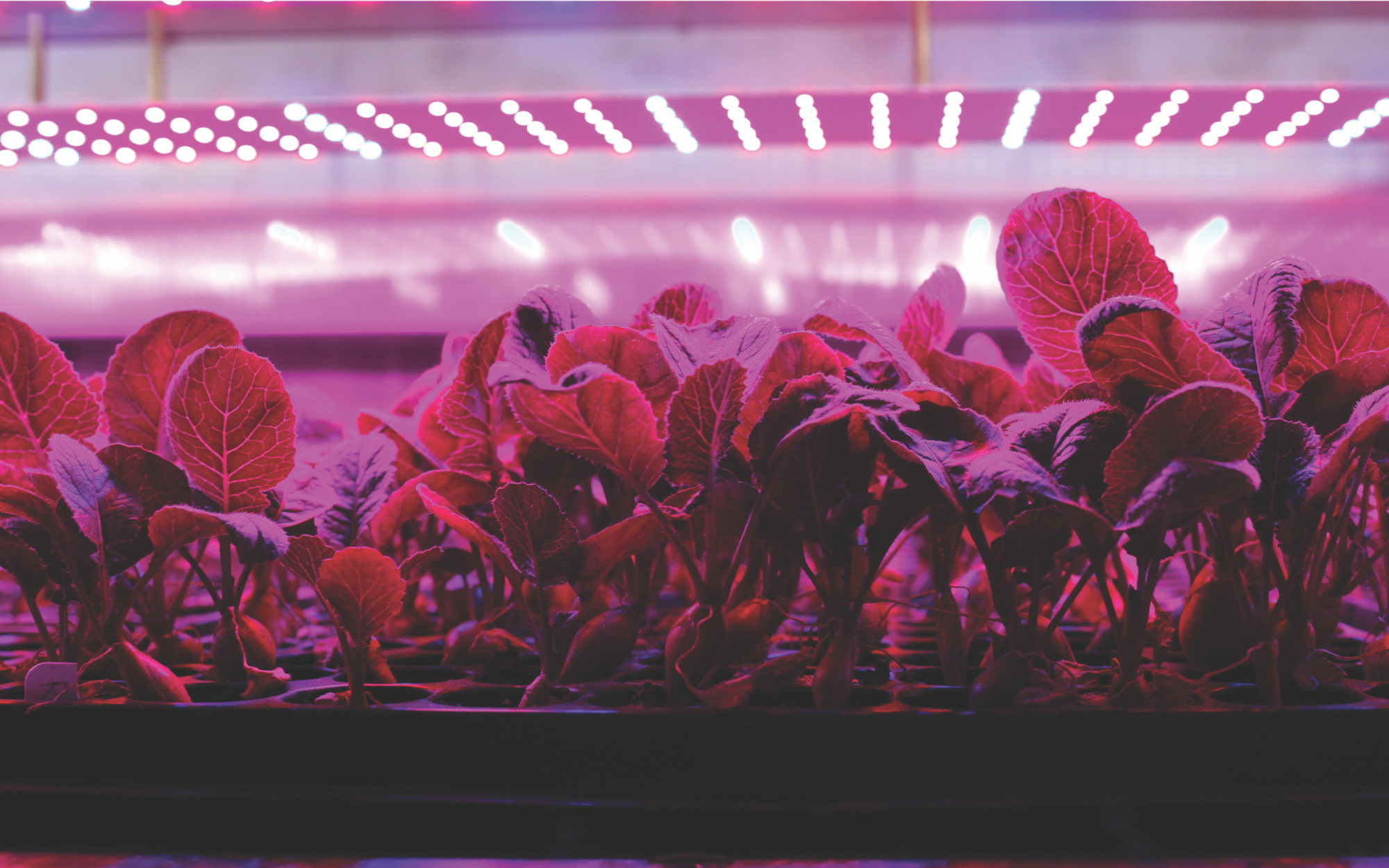ARKANSAS SCHOOLS TAKE UP GARDENING TO AUGMENT CURRICULUM
A generation or two ago, the extent of gardening in the classroom might have been limited to some plants under fluorescent light or science projects sprouting lima beans in Dixie cups, but those days appear to be long gone. Today, more schools in Arkansas are introducing various forms of gardening to get kids outside, teach about earth science, and raise awareness of environmental issues.
In fact, some of these programs have become so elaborate they rival what can be found in some of the state’s colleges and universities. In Van Buren, for example, the school district has developed systems ranging from garden plots outside elementary schools to futuristic growing systems that don’t require dirt.
“Our aquaponics program is soilless; everything’s grown in water,” says Brandi Davis, the district’s farm-to-school manager. “Lettuce grown in our aquaponics system is served to the kids in our cafeterias through our meal program.”
While many people may have heard the term “hydroponics,” which is growing vegetables in water, the Van Buren system goes beyond that to use a related method called aquaponics. The main difference between the two is in aquaponics, the grower incorporates aquaculture, in this case, tilapia fish, and lots of them. Six five-hundred-gallon tanks each hold between two hundred fifty to three hundred tilapia, while three additional one-hundred-gallon tanks hold the smaller fry. The byproducts of all these fish provide a nutrient-rich tea used to feed and grow produce.
“As far as a school district, I’m not aware of anyone else doing this,” says Tessa Clemmons, the district’s director of child nutrition. “I know we have some collegiate aquaponic and hydroponic facilities nearby where their ag departments are working on some things. But as far as a school district, if others are doing it, I haven’t heard of it.”
Long-range plans for the system include augmenting cafeteria foodstuffs with excess being sold through a school-run farmers market, the proceeds of which will be used by the Child Nutrition Department to fund, among other things, the district’s free breakfast program. Other educational plans, such as internships and student projects, are also in the works.
In central Arkansas, another school is taking its gardening program to the next level.
Jacksonville Lighthouse Charter School recently christened its container garden ― as in, a shipping container specially modified to act as a greenhouse. The setup came from a national nonprofit called Freight Farm and augments other terrestrial farming efforts in which the four-hundred-forty-student school is currently involved.
“We looked at our nutrition program and our population,” says Dr. Sarper Tucker, superintendent. “We have a very high poverty population, and knowing our students were not getting enough freshly produced food, we knew we had to do something about it. We started a small garden on our campus, and when it began producing fresh produce, we started using it for lunch. Our students, kindergarten through twelfth grade, work in the garden. They are very much a part of this initiative.
“We realized we had to extend the project, so we applied for certain grants. Our goal was to bring a container farm to our campus. We got the grants, and with our community’s sponsors and support, we’ve accomplished that goal.”
As in Van Buren, Jacksonville Lighthouse Charter has long-term goals for the program. “The container farm can produce up to two hundred to three hundred pounds of fresh produce,” Sarper says. “We can serve our entire K-12 population breakfast, lunch, and dinner and still have more, so we plan to serve our community through the farmers market.
“Our student body will run this; they can calculate the financial part of it, understand what that looks like, come up with a business plan, and the money they will earn will return to the program.”
Research has shown that the payoff for establishing such programs extends well past a student’s experiences in school. Last year, Elsevier published in the Journal of Nutrition Education and Behavior the results of a study that tracked how exposure to an experimental food program during their educational years influenced a person’s lifestyle years later.
The study tracked current and alumni participants of food education programs in twenty elementary schools in the eastern United States. Conducted by the Milken Institute School of Public Health at George Washington University, the study found that beyond the benefits of the classroom experience, such as teamwork and connecting with peers, the program shifted individual and family food choices as students became more actively involved in food practices and fresh options at school. Former students still demonstrated an appreciation for fresh food and openness to trying new foods, even as young adults.
In Arkansas, this potentially life-changing impact is being fostered through formal state-level programs, such as the Arkansas Department of Agriculture Farm to School program.
“The Arkansas Farm to School program exists to connect schools with local farmers and food producers, encourage school gardening, and incorporate agriculture education into classrooms,” says Jessica Chapman, Farm to School and early childhood education program coordinator. “It’s about providing students with fresh, nutritious food while fostering a better understanding of where their food comes from. Established in Arkansas in 2019, the program has steadily grown with the support of schools, state agencies, and local partners.”
Jessica shared various success stories of the program, including praising the efforts of Jacksonville Lighthouse Charter School and Van Buren Public Schools. “[Jacksonville’s] diverse growing systems offer hands-on experiences in agriculture and sustainability, enriching students’ education and fostering a deep connection to their food sources,” she says. “The Van Buren School District has seen great success with the Arkansas Farm to School program. Both Rena Elementary and Central Elementary in Van Buren are alumni of the Farm to School Institute, where they have developed strong garden-based education programs that have made remarkable strides in integrating agricultural education into their curriculum, fostering a deeper understanding of how food is grown, and providing students with hands-on learning experiences.”
The programs have also inspired broader environmental thinking and sustainability efforts, with composting systems that recycle cafeteria waste, recycling initiatives, and year-round greenhouses becoming more common.
“Batesville Preschool is another example of creativity in action,” Jessica says. “Students — known as the Worm Police — care for a mobile worm bin on wheels. They feed the worms compostable materials, like fruit scraps and vegetable peels collected from the cafeteria, and the bin is moved from class to class so everyone can participate.”
Jessica said it is relatively easy for a school to engage in such a program. “Start small — schools interested in starting a gardening program can easily begin with a few raised garden beds or a small garden space that allows schools to ease into the process and grow over time,” she says. “Costs can vary depending on the garden size, but many schools can launch their programs affordably with community support, donations, and small grants. Expertise is not a barrier — so many training resources are available for teachers and staff online, and community volunteers often bring valuable skills and enthusiasm to support the program.
“School gardens do much more than grow food — they nurture a culture of health, sustainability, and community collaboration while equipping students and families with tools to address food insecurity and thrive.”
To learn more about Farm to School, contact Jessica Chapman, Arkansas Department of Agriculture, jessica.chapman@agriculture.arkansas.gov, 501.225.1598.
Learn more at agriculture.arkansas.gov.
APPLICATIONS NOW BEING ACCEPTED
The Department of Agriculture’s Farm to School program is currently accepting applications for its Farm to School Institute, a yearlong professional development initiative designed to help Arkansas schools engage in food education programs. The Institute teaches school representatives how to increase access to fresh, healthy, and locally produced food while educating students about agriculture and nutrition and strengthening local food systems.
The Institute is open to educators, administrators, school nutrition directors, cafeteria staff, local farmers, and community partners.
Selected schools receive up to $6,000 toward a school garden and will also participate in a three-day kickoff retreat in July 2025 to create a farm-to-school action plan. With the support of a dedicated coach, teams will implement their plans throughout the school year, impacting classrooms, cafeterias, and communities. The program includes bi-monthly workshops, coaching, and peer networking, culminating in a celebratory gathering in spring 2026 to recognize the schools’ accomplishments.
Contact Jessica Chapman at jessica.chapman@agriculture.arkansas.gov, to learn more.




